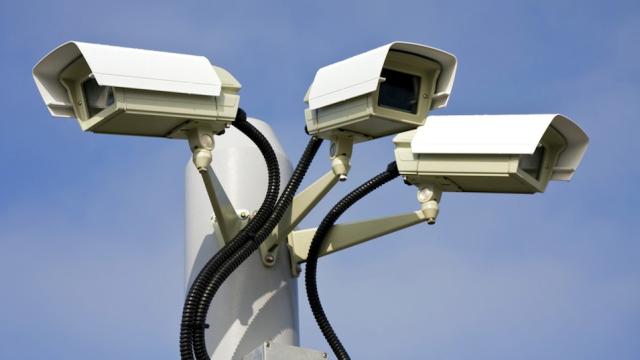Suppose you’re walking home one night, alone, and you decide to take a shortcut through a dark alley. You make it halfway through, when suddenly you hear some drunks stumbling behind you. Some of them are shouting curses. They look large and powerful and there are several of them. Nonetheless, you feel safe, because you know someone is watching.
You know this because you live in the future where surveillance is universal, ubiquitous and unavoidable. Governments and large corporations have spread cameras, microphones and other tracking devices all across the globe, and they also have the capacity to store and process oceans of surveillance data in real time. It sounds nightmarish — but it might be inevitable. We could be headed straight for the panopticon and if recent news developments are any indication, it might not take that long to get there.
Cataloguing the downsides of mass surveillance is important, essential even. But we have a whole literature devoted to that. Instead, let’s explore its potential benefits.
If calibrated properly, total surveillance might eradicate certain types of crime almost entirely. People respond well to inevitable consequences, especially those that follow swiftly on the heels of their conduct. Few would commit easily monitored crimes such as assault or breaking and entering, if it meant being handcuffed within minutes. This kind of ultra-efficient police capability would require not only sensors capable of recording crimes, but also advanced computer vision and recognition algorithms capable of detecting crimes quickly. In theory, they would be able to alert the police in real time, while the crime was still ongoing. Prompt police responses would create near-perfect deterrence, and violent crime would be reduced to a few remaining incidents of overwhelming passion or extreme irrationality.
We could expect crimes such as low-level corruption to vanish, because bribes would become perilous (to demand or receive) for those who are constantly under watch. We would likely see a similar reduction in police brutality. Ubiquitous video recording, mobile and otherwise, has already begun to expose such incidents.
On a smaller scale, mass surveillance would combat all kinds of abuses that currently go unreported because the abuser has power over the abused. You see this dynamic in a variety of scenarios, from the dramatic (child abuse) to the more mundane (line managers insisting on illegal, unpaid overtime). Even if the victim is too scared to report the crime, the simple fact that the recordings existed would go a long way towards equalising existing power differentials. There would be the constant risk of some auditor or analyst stumbling on the recording, and once the abused was out of the abuser’s control (grown up, in another job) they could retaliate and complain, proof in hand.
[Today], police officers can, on mere suspicion, detain you, search your person, interrogate you, and sometimes enter your home. They can also arrest you on suspicion of vague ‘crimes’ such as ‘loitering with intent’. Our present police force is given these powers because it needs to be able to investigate. But in a total-surveillance world, there would be no need for humans to have such extensive powers of investigation. For most crimes, guilt or innocence would be obvious and easy to establish from the recordings. The police’s role could be reduced to arresting specific individuals, who have violated specific laws.
Of course, these considerations pale when compared with the potential for mass surveillance to help prevent global catastrophic risks, and other huge disasters. Mass surveillance could help greatly here, by catching lethal pandemics in their earliest stages, or beforehand, if we were to see one being created artificially. Surveillance could allow for quicker quarantines, and more effective treatment of pandemics. Medicines and doctors could be rushed to exactly the right places, and micro-quarantines could be instituted. More dramatic measures, such as airport closures, are hard to implement on a large scale, but these quick-response tactics could be implemented narrowly and selectively. Most importantly, those infected could be rapidly informed of their condition, allowing them to seek prompt treatment.
Surveillance could also be useful in smaller, more conventional disasters. Knowing where everyone in a city was at the moment an earthquake struck would make rescue services much more effective, and the more cameras around when hurricanes hit, the better. Over time, all of this footage would increase our understanding of disasters, and help us to mitigate their effects.
Yes, these potential benefits aren’t the whole story on mass surveillance, and I would never argue that they outweigh the potential downsides. But if we’re headed into a future panopticon, we’d better brush up on the possible upsides. Because governments might not bestow these benefits willingly — we will have to make sure to demand them.
Image: Shutterstock/Brian A Jackson
This article has been excerpted with permission from Aeon Magazine. To read in its entirety, head here.
Aeon is a new digital magazine of ideas and culture, publishing an original essay every weekday. It sets out to invigorate conversations about worldviews, commissioning fine writers in a range of genres, including memoir, science and social reportage.
